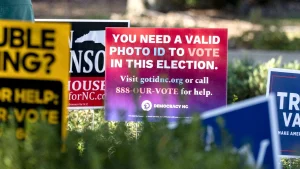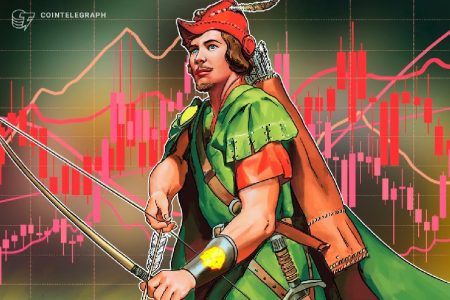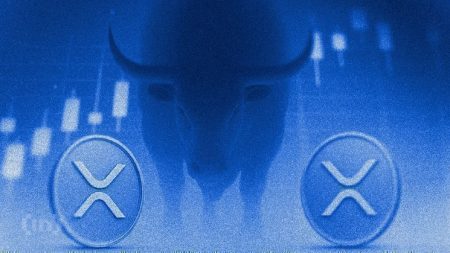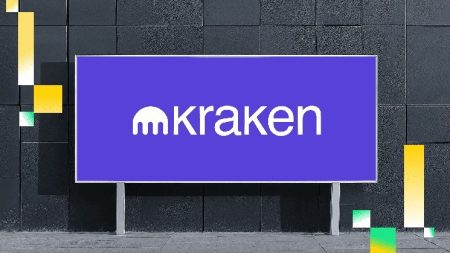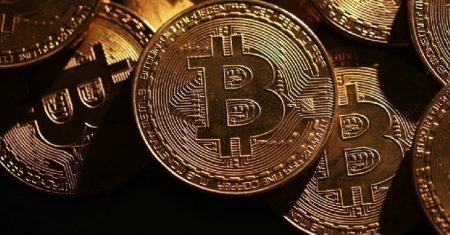Robinhood CEO Predicts Tokenization Will Revolutionize Traditional Finance
Tokenization “Freight Train” Headed for Wall Street, Says Tenev at Singapore Conference
SINGAPORE — In a bold prediction that signals a fundamental shift in how we might soon trade and own assets, Robinhood CEO Vlad Tenev declared that tokenization represents the most significant development in cryptocurrency today, one that’s rapidly advancing to disrupt traditional financial systems.
Speaking to an engaged audience at the Token2049 conference in Singapore, Tenev characterized tokenization as a “freight train” on a collision course with conventional finance. His metaphor underscored both the inevitability and transformative power he sees in blockchain-based asset ownership. “Crypto and traditional finance have been living in separate worlds, but they’ll fully merge,” Tenev asserted with confidence. “In the future, everything will be on-chain in some form, and the distinction will disappear.”
This isn’t mere speculation from the Robinhood chief. The popular trading platform has already begun implementing this vision by offering tokenized stocks in European markets and, more controversially, providing access to private shares in highly sought-after non-public companies like OpenAI. These moves represent significant bets on a future financial ecosystem where assets trade continuously, without time restrictions, on blockchain networks, accessible to investors worldwide.
Global Accessibility Driving Initial Tokenization Push
The strategic decision to launch tokenized stocks in Europe before the United States reveals Robinhood’s understanding of where demand currently exists. Tenev explained this approach during his presentation: “In the same way that stablecoins have become the default way to get digital access to dollars, tokenized stocks will become the default way for people outside the U.S. to get exposure to American equities. That’s why we launched our stock tokens in Europe first—it’s the future of how global investors will hold U.S. assets.”
This international focus highlights one of tokenization’s most compelling value propositions: democratizing access to investment opportunities traditionally limited by geography, accreditation requirements, or minimum investment thresholds. For millions of potential investors outside the United States, tokenized securities could represent their first realistic opportunity to participate in American markets without the complications of cross-border brokerage accounts.
Despite enthusiasm within the cryptocurrency industry about recent U.S. policy developments regarding digital assets, Tenev believes America trails Europe in creating regulatory frameworks that embrace tokenization’s potential. The Robinhood CEO pointed to a lack of urgency in updating U.S. regulations to accommodate innovations like 24/7 trading of tokenized securities, attributing this to complacency with existing systems.
U.S. Regulatory Environment: Comfort Breeds Complacency
Drawing an unexpected but apt comparison, Tenev likened America’s sluggish adoption of tokenized finance to its reluctance to build high-speed rail systems. “The biggest challenge in the U.S. is that the financial system basically works. It’s why we don’t have bullet trains—medium-speed trains get you there well enough,” he observed. “So the incremental effort to move to fully tokenized will just take longer.”
This assessment highlights a central challenge in financial innovation: truly transformative changes often struggle to gain traction when existing systems function adequately, even if they’re far from optimal. Regulatory frameworks designed for traditional market structures may inadvertently protect inefficiencies by creating barriers to disruptive technologies.
Nevertheless, Tenev remains optimistic about tokenization’s long-term trajectory, predicting that U.S. regulations will eventually catch up to market realities. In his view, the benefits of tokenized assets—including increased liquidity, fractional ownership opportunities, and programmable compliance features—will ultimately prove too compelling to ignore, even for cautious regulators.
Real Estate: The Next Frontier for Digital Ownership
Looking beyond stocks and private company shares, Tenev revealed that Robinhood has set its sights on tokenizing real estate—a market that dwarfs equity markets in size and traditionally suffers from significant liquidity constraints. “Tokenizing property is mechanically no different from tokenizing a private company, such as SpaceX or OpenAI,” Tenev explained. “You place the assets into a company structure and then issue tokens against it.”
This straightforward approach could revolutionize how people invest in property, potentially transforming illiquid real estate holdings into assets that trade with the ease of stocks or cryptocurrencies. For average investors, this might mean the ability to purchase fractional interests in prime commercial or residential properties previously accessible only to institutional investors or the wealthy.
When addressing the controversy surrounding Robinhood’s tokenization of OpenAI’s private shares—which the AI company described as “unauthorized”—Tenev characterized the situation as symptomatic of regulatory lag rather than a fundamental flaw in the tokenization concept. While some legal experts have suggested the offering operates in a legal gray area, Tenev remained confident that such hurdles represent transitional growing pains rather than permanent obstacles.
The Inevitable Financial Revolution
Concluding his remarks with characteristic boldness, Tenev made perhaps his most sweeping prediction: “Eventually, it’s going to eat the entire financial system.” This statement encapsulates his vision of tokenization not as a niche technology or alternative investment category, but as the future standard for all asset ownership and trading.
This perspective suggests a financial future where the boundaries between traditional and crypto finance dissolve completely. In this scenario, the blockchain becomes simply infrastructure—the rails upon which all financial assets move—rather than a separate, alternative ecosystem.
For investors, financial institutions, and regulators alike, Tenev’s predictions present both opportunities and challenges. If tokenization indeed transforms finance as fundamentally as he suggests, the implications extend far beyond trading apps and investment portfolios. Such a shift would necessitate rethinking everything from securities laws to market hours, settlement processes to custody arrangements.
Whether Tenev’s freight train metaphor proves accurate—with tokenization barreling toward traditional finance with unstoppable momentum—remains to be seen. But Robinhood’s strategic moves suggest the company is positioning itself at the forefront of this potential revolution, betting that tomorrow’s financial markets will look dramatically different from today’s. As traditional finance and cryptocurrency technologies continue their convergence, market participants worldwide will be watching closely to see if Tenev’s bold predictions come to fruition.

